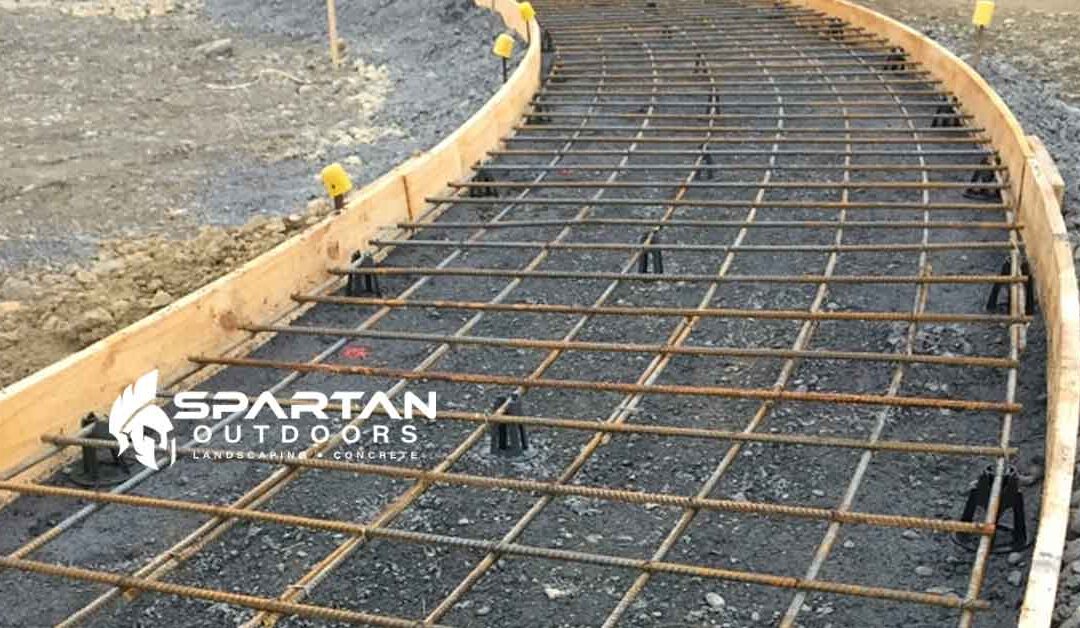When it comes to pouring a concrete slab, understanding the types of concrete available is crucial. Whether you’re a homeowner planning to upgrade your patio or a business owner looking to create a solid foundation, the right choice of concrete can significantly impact the success of your project. In this comprehensive guide, we’ll delve deep into the world of concrete, exploring the various types, their unique properties, and how to make an informed decision when hiring a professional to pour your slab.
The Foundation of Construction: Understanding Concrete
Concrete is the cornerstone of the construction industry. It’s the most widely used construction material globally, thanks to its remarkable versatility, strength, and durability. It’s composed of three primary ingredients: cement, water, and aggregates (such as sand and gravel). These components are mixed in precise proportions to create the sturdy and long-lasting material we know as concrete.
Types of Concrete
Concrete comes in several types, each tailored to specific needs and applications. Understanding these types is essential when planning your project. Let’s explore the most common variations:
1. Normal Strength Concrete
Normal strength concrete, or “N-slab,” is the most basic form of concrete. It’s used in various non-structural applications, like sidewalks, patios, and driveways. It’s an ideal choice for projects where high strength isn’t a primary requirement.
2. High-Strength Concrete
High-strength concrete, often referred to as “H-slab,” is designed to withstand heavy loads and provide exceptional durability. It’s suitable for applications where superior strength is essential, such as industrial floors and high-rise buildings.
3. Stamped Concrete
Stamped concrete offers both durability and aesthetics. It can mimic the appearance of natural materials like stone, brick, or wood. Stamped concrete is a popular choice for decorative applications, such as patios and walkways.
4. Shotcrete
Shotcrete is a method of applying concrete with a high-velocity air hose. It’s commonly used in structural repair and construction projects, especially for curved or complex surfaces. The ability to adhere to vertical and overhead surfaces makes it a versatile choice.
5. Fiber-Reinforced Concrete
Fiber-reinforced concrete incorporates fibers (such as steel, glass, or synthetic) to enhance its tensile strength and reduce cracking. It’s suitable for applications that require added durability, like pavements and bridge decks.
6. Ready-Mix Concrete
Ready-mix concrete is a convenient option for those who prefer a consistent and pre-mixed solution. It’s prepared at a batching plant and delivered to the construction site. This type of concrete is widely used in large-scale construction projects.
7. Pervious Concrete
Pervious concrete, also known as porous or permeable concrete, is engineered to allow water to pass through it. It’s an eco-friendly choice that’s often used in areas where water drainage is a concern, like parking lots and driveways.
8. Self-Consolidating Concrete (SCC)
SCC is designed to flow easily and fill intricate forms without the need for mechanical consolidation. It’s a time-saving option for projects with complex shapes and configurations.
9. Colored Concrete
Colored concrete offers a wide range of color options, making it ideal for projects where aesthetics play a significant role. It’s commonly used in decorative concrete applications like pool decks and architectural elements.
10. Ultra-High-Performance Concrete (UHPC)
UHPC is an advanced type of concrete known for its exceptional strength and durability. It’s used in critical applications like bridge construction and high-stress areas.
Factors to Consider When Choosing Concrete
Selecting the right type of concrete for your project involves considering various factors:
1. Project Requirements
Determine the specific needs of your project. Is it a structural application, a decorative element, or something else? Matching the concrete type to your project’s requirements is crucial.
2. Climate Conditions
Consider the local climate in Foley, Alabama, where extreme heat and humidity are common. Some concrete types may be more suitable for this environment than others.
3. Budget Constraints
Your budget plays a significant role in the type of concrete you can choose. While high-strength or decorative options may be desirable, they can also be costlier.
4. Durability Expectations
Assess the expected lifespan of your project. Some concrete types are more durable and long-lasting, making them ideal for applications where longevity is essential.
5. Aesthetics
If the visual appeal of your project is a top priority, consider concrete types that offer various colors and finishing options.
6. Environmental Impact
If sustainability is a concern, consider using eco-friendly options like pervious concrete that aid in water drainage and reduce environmental impact.
Choosing the Right Professional
Once you’ve determined the type of concrete that suits your project best, the next critical step is finding the right professional to pour your slab. Here are some considerations for hiring the right expert:
1. Experience and Expertise
Look for professionals with a proven track record of working with your chosen concrete type. Experience matters when it comes to achieving the desired results.
2. Local Knowledge
Choose a professional with knowledge of the local climate and environmental factors in Foley, Alabama. Local expertise can ensure your project’s success.
3. Licensing and Certification
Ensure that the professional you hire is licensed and certified. This guarantees that they meet the necessary quality and safety standards.
4. References and Reviews
Check for references and read online reviews to gauge the reputation and reliability of the professional you’re considering.
5. Transparency and Communication
Effective communication is key to a successful project. Choose a professional who is transparent and responsive to your queries and concerns.
Choosing the right type of concrete for your project is a fundamental decision that can greatly influence the outcome. It’s essential to consider the specific requirements of your project, the local climate, budget constraints, and aesthetic preferences. Equally important is selecting a professional with the expertise and experience to ensure your concrete slab is poured with precision and meets your expectations. With these considerations in mind, you’ll be well-prepared to embark on your concrete project with confidence, knowing that you’ve made an informed choice.

